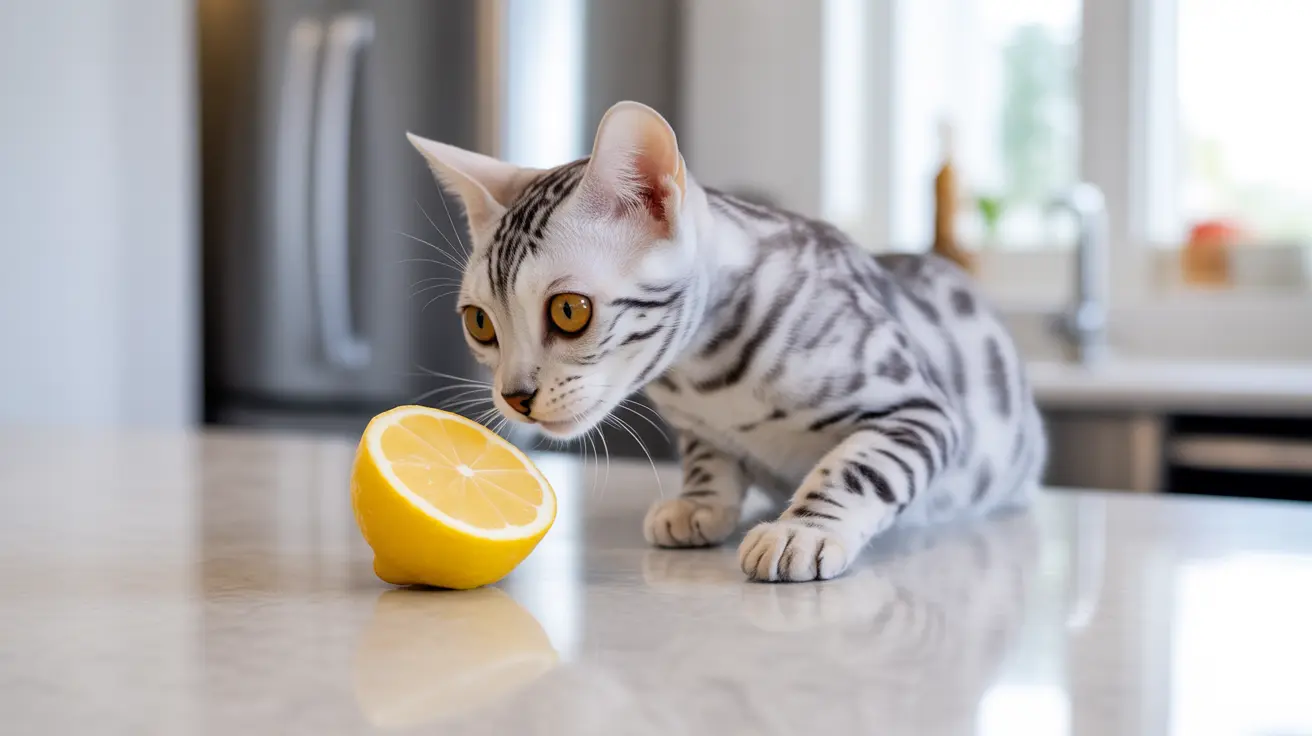Many cat owners searching for natural flea treatments often wonder about using lemon juice as a solution. While the idea of a natural, readily available flea treatment is appealing, the relationship between lemon juice and flea control is complicated – especially when it comes to cats.
This comprehensive guide examines the science behind lemon juice's effects on fleas, its potential risks to cats, and what veterinary experts recommend instead. We'll explore why this popular home remedy might do more harm than good for your feline friend.
Understanding Lemon Juice's Impact on Fleas
Lemon juice contains two compounds that theoretically combat fleas: citric acid and limonene. While laboratory studies show these substances can affect fleas, their real-world effectiveness is limited. The tough exoskeleton of fleas provides significant protection against lemon juice's acidic properties, making it an unreliable solution for active infestations.
At best, lemon juice acts more as a deterrent than an effective killing agent. The strong citrus scent may repel fleas, but this minor benefit doesn't outweigh the significant risks to cats.
The Hidden Dangers for Cats
Cats are uniquely sensitive to citrus compounds, particularly limonene and psoralens found in lemon juice. These substances can be toxic to cats, whether absorbed through their skin or ingested during grooming. Even diluted lemon juice can cause serious health issues, including:
- Severe skin irritation
- Gastrointestinal distress
- Drooling and vomiting
- Respiratory problems
- Liver dysfunction
- Neurological symptoms like tremors
Safe Alternatives for Flea Control
Instead of risking your cat's health with lemon juice, veterinarians recommend several proven and safe approaches:
Veterinary-Approved Treatments
- FDA-approved topical treatments
- Prescription oral medications
- Vet-recommended flea collars
Environmental Control
- Regular vacuuming
- Washing pet bedding in hot water
- Professional pest control services
- Flea combing with proper disposal
Breaking the Flea Life Cycle
Effective flea control requires addressing all stages of the flea life cycle. Adult fleas on your cat represent only about 5% of the total flea population in your home. The remaining 95% exists as eggs, larvae, and pupae in your environment.
A comprehensive approach targeting both your cat and their environment is essential for successful flea elimination. This means combining proper treatment of your pet with thorough home cleaning practices.
Frequently Asked Questions
Is lemon juice safe to use directly on cats to kill fleas?
No, lemon juice is not safe for direct use on cats. The compounds in lemon juice are toxic to cats and can cause serious health problems, including skin irritation, gastrointestinal issues, and even liver damage.
How effective is lemon juice at killing or repelling fleas on cats?
While lemon juice may have some flea-repelling properties, it's not effectively lethal to fleas in real-world conditions. The potential risks far outweigh any minor benefits it might offer.
What are the health risks of using lemon juice or lemon-based products on cats?
Risks include skin irritation, chemical burns, gastrointestinal upset, vomiting, respiratory issues, liver problems, and neurological symptoms. Cats can be affected through skin absorption or by ingesting the substances while grooming.
How should lemon juice be used safely around cats to help control fleas?
If you choose to use lemon juice for flea control, only use it in areas where cats cannot come into direct contact, such as in cleaning solutions for non-pet surfaces. Never apply it directly to cats or their bedding.
What are the best veterinarian-recommended treatments for fleas on cats compared to lemon juice?
Veterinarians recommend FDA-approved topical treatments, oral medications, or flea collars specifically designed for cats. These products are both safer and more effective than lemon juice or other home remedies.
Conclusion
While the appeal of natural flea treatments is understandable, lemon juice poses significant risks to cats and offers minimal benefits in flea control. Instead of experimenting with potentially harmful home remedies, consult your veterinarian for safe, effective flea treatment options that won't compromise your cat's health.
Remember, the best flea control strategy combines veterinary-approved treatments with thorough environmental management. This approach ensures both safety and effectiveness in protecting your feline friend from fleas.






